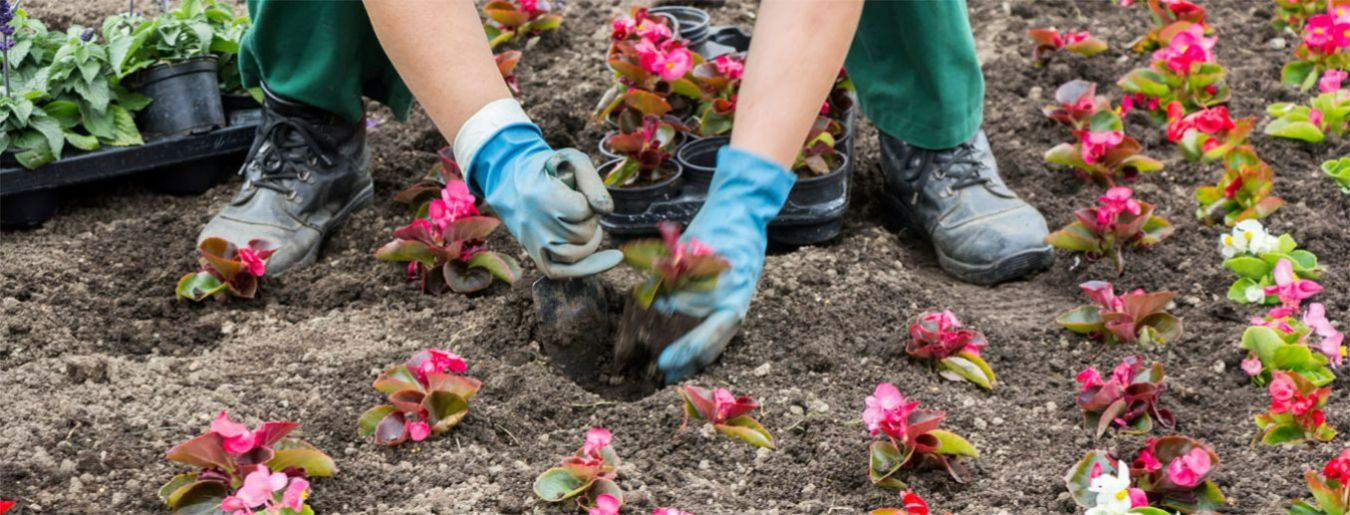Late winter and early spring often find us in busy periods at work and school, and our everyday obligations delay us from planning gardens that will give us an abundance of flowers and vegetables to enjoy during the warmer months of the year.
If you have found yourself scrambling to plant seeds in the spring—or if you just want to see the fruits of your labor as soon as possible—then this article is for you. Here we’ll cover six fast growing plants from seeds to include in your garden.
Which Flower Grows the Fastest?
Identifying the fastest blooming flower from seed isn’t exactly easy. A number of factors can influence how quickly a seed sprouts, grows, and eventually blooms into a beautiful flower. Soil quality, moisture levels, temperature, pressure, and light are just a few external factors. There can also be variation among individual seeds even in the same species of plant.
This is all to say that it’s difficult to call out one flower as the quickest to bloom. We can identify, however, several of the fastest sprouting flower seeds. The flowers listed below tend to germinate within two weeks and transform into beautiful flowers within 90 days. In the right conditions, some may flower within 60 to 75 days. This is substantially faster than most annual flowers, which typically take closer to 100 days to flower on average.

Get Home Warranty Quotes
from Top Rated Authorized
Partners
Get a Quote
Flower Seeds That Grow Fast: 6 Quick Ways to Put Your Garden in Bloom
1. Cornflowers
Cornflower seeds germinate within seven to ten days. Their ability to grow quickly is perhaps what gave them an early reputation as troublesome weeds. Cornflowers would often grow in fields of corn and other grains, hence their name.
Plant cornflower seeds late in the spring to see beautiful blue blooms in summer. Sow the seeds about half an inch into the soil. Prune the dead flowers when they die—a process known as deadheading—and the plant will continue to produce more blooms.
Cornflower petals are edible. Fresh or dried petals make a colorful garnish for cocktails, soups, and desserts. You can also add dried petals to tea leaves for brewing.
2. Nigellas
Nigellas are striking flowers that appear in a variety of colors. It’s not uncommon to see white, pale blue, or purple flowers, though yellow and pink are possible too. The seeds germinate within a week or two, and the plants grow quickly through the spring to flower in summer.
Some experts recommend sowing nigella seeds in rounds. That is, space out several plantings of seeds by a few days or a week. While the flowers bloom quickly, they disappear quickly as well. This is especially true if the plants are subject to hot summer sun for long periods of time. Planting seeds in rounds will ensure that you can enjoy nigella blooms in your garden longer into the summer.
3. Petunias
Petunia seeds germinate in seven to ten days on average. Flowers should bloom within three months. Petunias are quite tolerant of a variety of conditions, but they don’t handle frost very well. Sow seeds in spring when you’re reasonably confident that temperatures won’t dip below freezing. The plants will grow quickly through the spring.
Petunias come in countless patterns and colors. They are also known for their sweet-smelling fragrance, which is usually most potent in the evening.
4. Poppies
Poppy plants are hardy and forgiving, making them great for gardeners who are inexperienced or easily distracted by other responsibilities. There are multiple cultivars of poppies, and some, such as the California poppy, can bloom in as little as two months. These early bloomers will give your garden a brilliant shock of color in early summer, before other plants have had a chance to bloom.
Fragrant poppy plants are wonderful attractors of pollinating insects. The plants also reseed quite easily, so planting in a single season can bring returns year after year. After the flowers die off, you can use the dried seed pods for ornamental arrangements.
5. Sunflowers
Sunflowers typically grow through the midsummer to early fall, but you can get them off to an early start if your soil is warm enough in the spring. Sunflower seeds germinate in around seven to ten days, and the plants shoot up remarkably quickly. You may see the vivid yellow blooms atop six-foot stems in under three months.
Perhaps befitting of their name, sunflowers grow well in full sun. Their tall height can make them vulnerable to damage in strong summer storms, but you can support the plants by tying them to wooden dowels staked firmly in the ground.
Replant the seeds at the end of the season—or toast them in the oven with a little salt for a classic snack.
6. Marigolds
Marigold seeds do best in warm, moist soil with good drainage, though the plants themselves are very tolerable of different soil types. The seeds can germinate in under a week, and the bright yellow and orange flowers can bloom in two months or less. You can start the seeds indoors to get a head start on the season.
Marigolds will continue to flower through the summer, ceasing when cold temperatures and frost arrive in the fall. Some marigold varieties are commonly planted beside tomatoes, potatoes, peppers, and other vegetables to keep away pests.




 Prev Post
Prev Post


